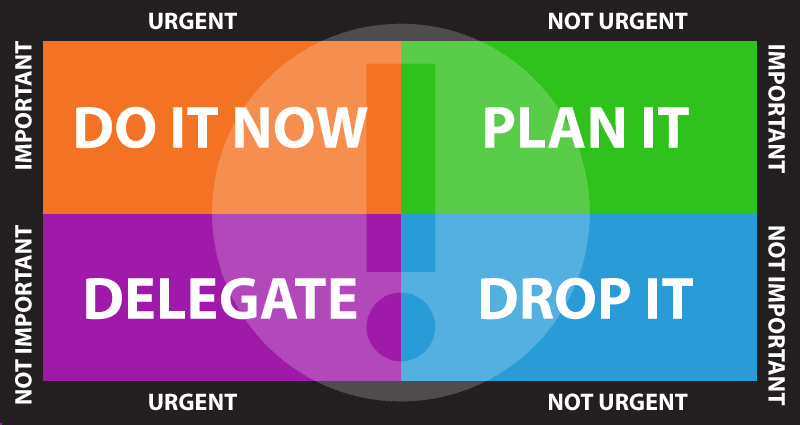
What to do when there’s never enough time to get anything done.
There’s never enough time to get anything done. Between meetings and coffee breaks, conversations with co-workers and email distractions, the day seems to fly by and you never quite accomplish what you want to.
Well, you’re not alone. And that may be part of the problem.
In theory, bringing employees together for 8 hours a day, 5 days a week is supposed to aid in collaboration. Instead, it seems to compound the chances of being scheduled into entirely unnecessary meetings, or being called away to answer unrelated questions from upper management, when all you really wanted was to respond to your friend’s Facebook post the with a new emoji before someone else did.
If this sounds way too familiar, let me share a good way to get more things done, courtesy of our 34th President.
Yes, 34th. As in Dwight David Eisenhower. Five-star general, Supreme Commander of WWII Allied Forces in Europe, First Supreme Commander of NATO, and President of Columbia University as well. As Prez from 1953-1961, he began programs that turned into the Interstate Highway System, NASA, and the launch of the internet. This is a man that knew how to be productive.
One of his quotes — “What is important is seldom urgent and what is urgent is seldom important” — has become the foundation for a decision matrix that bears his name. The Eisenhower Box (shown in the graphic accompanying this post) uses two simple decisions to judge each task:
(1) Important vs. Not Important
and
(2) Urgent vs. Not Urgent
All you have to do is place the task into the matrix using your two choices.
Tasks that fall in the Important / Urgent are things you need to do immediately. These are crises, deadlines, problems that need to be handled right away, and that only you can handle. Do it. Now.
Important / Not Urgent are tasks you can schedule to do later. This will give you the opportunity to set aside time to concentrate on the tasks you need to handle yourself, or to assemble additional resources for projects that are long-term in scope or you need assistance (website redesign or rebranding, for example).
Not Important / Urgent are tasks you need to delegate to someone else right away. They need to get done quickly, and done well, but you don’t have to be the one to do it. Hand it off to a co-worker or your favorite outside marketing agency (ahem/cough/furiously wave our hands) so that you can focus on the Important tasks.
Not Important / Not Urgent also means they are not worth anyone’s effort. So unless they have been requested by your direct boss, drop them. These are your time-wasters, the things you tend to do (like going to entirely unnecessary meetings and checking your Facebook feed) that won’t help you get things done.
With enough practice, you might be able to turn “never enough time” into “just enough time.”
- Are you scared yet? - October 22, 2024
- OMG! Who really IS our competition?!? - September 24, 2024
- Do 5-star ratings really mean anything? - August 27, 2024
